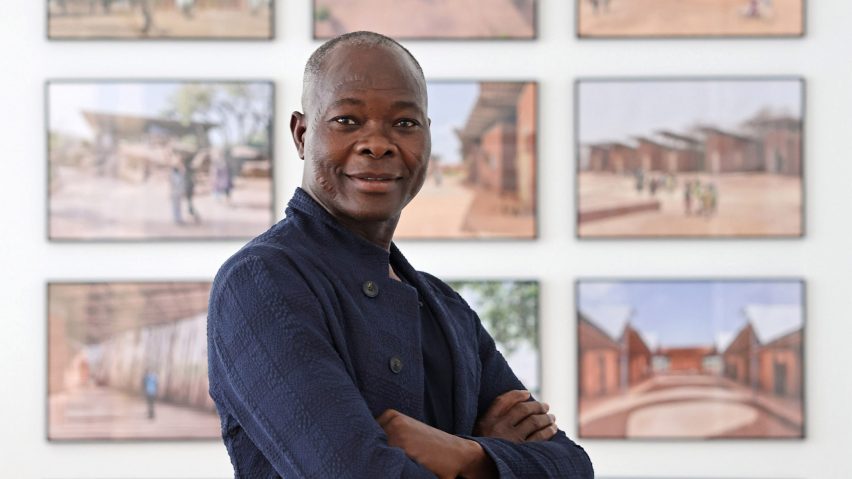
Diébédo Francis Kéré awarded 2023 Praemium Imperiale for architecture
Burkinabè architect Diébédo Francis Kéré has been named the 2023 architecture laureate for the Praemium Imperiale awards by the Japan Art Association.
Praemium Imperiale is an annual award programme that celebrates creatives across the fields of architecture, music, sculpture, painting and theatre or film.
Kéré, who leads the Berlin architecture studio Kéré Architecture, has been selected as this year's recipient of the Praemium Imperiale architecture prize.
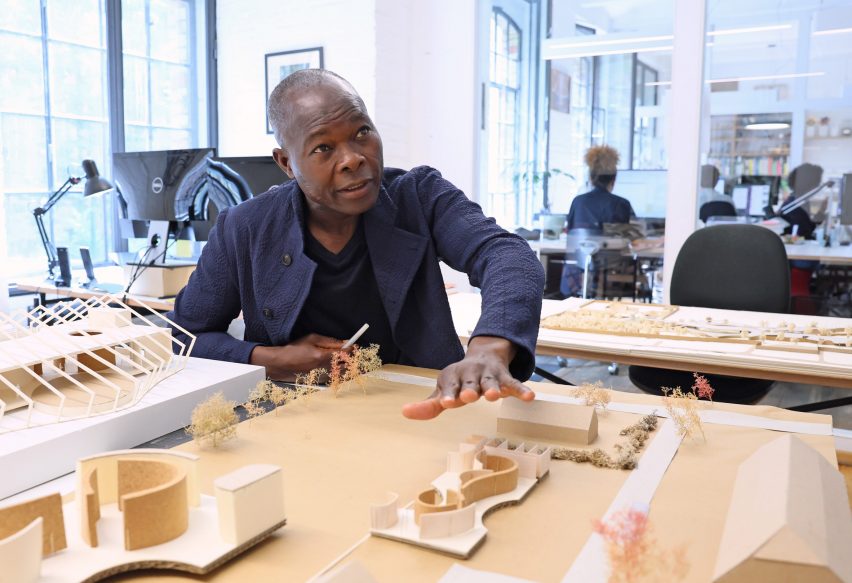
Kéré has completed numerous projects across Africa, including in the Republic of Benin, Togo, Kenya, Mozambique, Mali, Sudan and his home country Burkina Faso.
He was praised by Praemium Imperiale for his buildings that "utilise the skills and energies of the local community" and for "employing traditional building materials and marrying them with modern design".
"By combining local materials and skills with innovative design and smart engineering solutions, while maintaining a focus on working with local communities, Diébédo Francis Kéré has transformed architecture not only in Burkina Faso but also across Africa and beyond," read the jury citation.
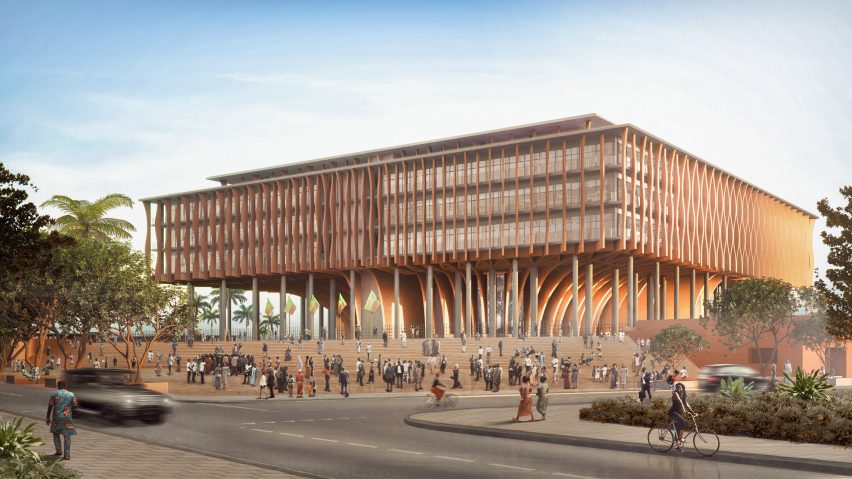
"Kéré's designs weave together elements of traditional African design, with modern architecture, as revealed in the colours of Coachella's Sarbalé Ke, the wooden patterns of Xylem at Tippet's Rise, USA, and his constant referencing of trees," the citation continues.
Born in 1965, Kéré trained as a carpenter in Burkina Faso before being awarded a scholarship for an apprenticeship in development aid from the Carl Duisberg Society.
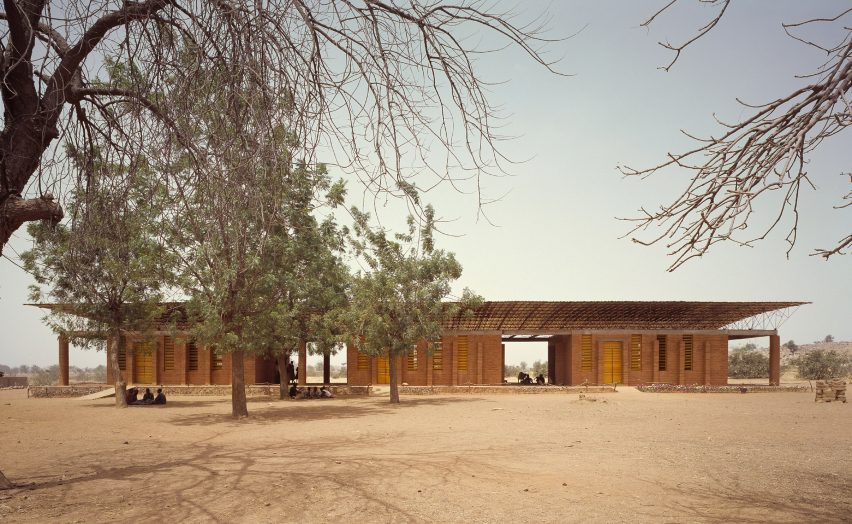
After completing his apprenticeship, Kéré went on to study architecture in Germany at the Technical University of Berlin where he graduated in 2004.
Kéré's portfolio focuses predominantly on social initiatives for marginalised communities, dominated by projects such as schools and community buildings. These include Lycée Schorge Secondary School and the Kamwokya Community Centre in Kampala.
One of his earliest buildings was Gando Primary School in his home village, which he began designing while at university. In a video interview, he told Dezeen the school was "not a traditional African building".
Other recent projects by Kéré include the Startup Lions Campus in Kenya, which is formed of a cluster of brick buildings, and the Senegal headquarters for the non-profit Goethe-Institut.
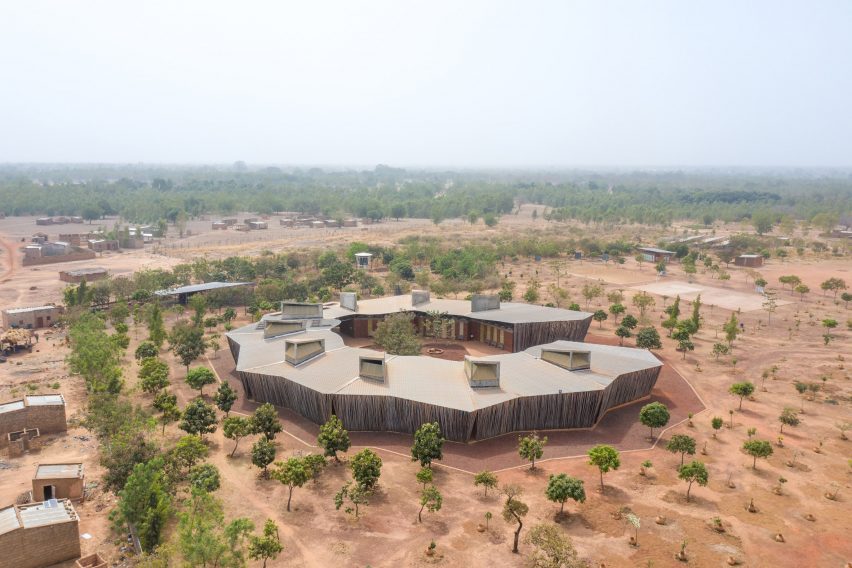
In 2017 he created a tree-inspired Serpentine Pavilion, before creating a pavilion at the Tippet Rise Art Center in Montana from dead trees in 2019. His studio's current projects include Burkina Faso's new parliament building as well as the National Assembly of Benin.
The Praemium Imperiale awards are presented annually by Japan's imperial family. Each laureate receives 15 million Yen, which is equivalent to £90,000.
Last year's winner of the architecture award was Japanese studio SANAA. Previous winners of the architecture award include the likes of Zaha Hadid, Glenn Murcutt, Frank Gehry and Tod Williams and Billie Tsien.
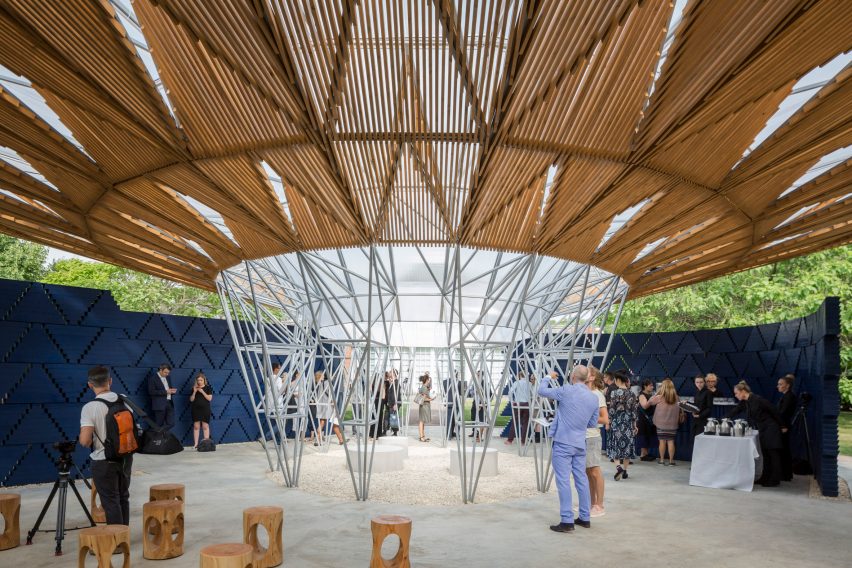
Other winners of this year's Praemium Imperiale awards include Danish-Icelandic artist Olafur Eliasson for sculpture, American artist Vija Celmins for painting, American musician Wynton Marsalis for music and American director Robert Wilson for theatre and film.
Architecture studio Rural Studio, which is led by British architect Andrew Freear at Auburn University in Alabama, was also awarded the Grant for Young Artists who will receive five million Yen, an equivalent of £30,000.
Kéré was also recently awarded the 2022 Pritzker Architecture Prize, becoming the first African architect to win the prestigious award. Following the news, Dezeen highlighted ten of Kéré's key projects.
The photography is courtesy of The Japan Art Association/The Sankei Shimbun, unless stated otherwise.